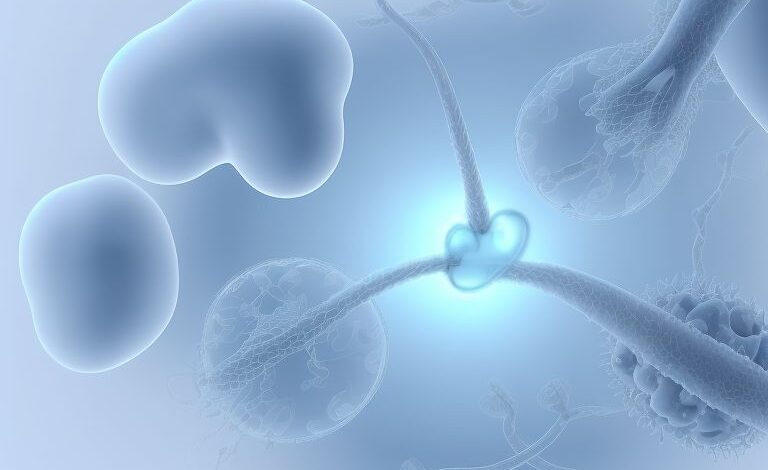IVF Success Rates for Male Factor Infertility: What to Expect

Success Rates of IVF with Male Factor Infertility: What You Need to Know
Male factor infertility is a leading cause of reproductive challenges, accounting for nearly 40-50% of infertility cases globally. For couples struggling to conceive, In Vitro Fertilization (IVF) has become one of the most effective treatments, especially when male factor infertility is involved. With advancements in assisted reproductive technology (ART), many couples have renewed hope of achieving pregnancy despite male fertility issues.
In this article, we’ll dive into the success rates of IVF with male factor infertility, explore the factors that influence outcomes, and explain how specialized techniques like Intracytoplasmic Sperm Injection (ICSI) can boost your chances of conception.

What is Male Factor Infertility?
Male factor infertility refers to fertility challenges related to problems with sperm quality, quantity, or function. Common causes include:
- Low sperm count (oligospermia)
- Poor sperm motility (asthenospermia)
- Abnormal sperm shape (teratospermia)
- Obstructive issues (such as a blocked vas deferens)
- Hormonal imbalances or genetic conditions
- Varicocele, or enlarged veins in the scrotum, affecting sperm production
When couples face difficulty conceiving due to any of these male-related issues, IVF often becomes the go-to fertility treatment.
How Does IVF Address Male Factor Infertility?
In IVF treatment, an egg is fertilized with sperm outside the body in a laboratory. For cases of male factor infertility, traditional IVF might not always be sufficient due to the low quality or quantity of sperm available. In such cases, a technique called Intracytoplasmic Sperm Injection (ICSI) is often used in conjunction with IVF to improve the chances of fertilization.
What is ICSI?
ICSI is a procedure where a single healthy sperm is injected directly into the egg. This technique bypasses many issues associated with male infertility, such as low sperm motility or poor morphology, increasing the chances of successful fertilization.
By using ICSI, IVF success rates significantly improve for couples dealing with male factor infertility.
Success Rates of IVF with Male Factor Infertility
General IVF Success Rates
Before diving into specifics, it’s important to understand that overall IVF success rates vary based on several factors, including the woman’s age, health conditions, and the fertility clinic’s expertise. The success rates for IVF with ICSI typically range from:
- 30-35% per cycle for women under 35 years old
- 25-30% per cycle for women aged 35-37
- 15-20% per cycle for women aged 38-40
- 10-15% per cycle for women over 40
These figures represent the average success rates for all IVF treatments, including those with male factor infertility.
Success Rates with Male Factor Infertility and ICSI
For couples dealing with male factor infertility, using ICSI alongside IVF has proven to significantly improve outcomes. Studies indicate that the fertilization success rate with ICSI ranges from 70-80%, regardless of sperm quality. This is a considerable improvement over traditional IVF fertilization methods, where sperm is simply combined with the egg in a petri dish, relying on the sperm’s natural ability to penetrate the egg.
While fertilization rates are high with ICSI, the success rate of IVF ultimately depends on factors like embryo quality, the age of the female partner, and the quality of the sperm used.
Male Infertility and IVF Success Factors
Several factors impact IVF success rates for male factor infertility:
- Age of the Female Partner: Female age plays a crucial role in IVF success. Younger women generally have healthier eggs, which leads to better fertilization and implantation rates.
- Sperm Health: While ICSI can overcome many sperm-related issues, using healthier sperm can still lead to better-quality embryos and higher pregnancy rates.
- Underlying Male Fertility Condition: The cause of male infertility can influence success rates. Men with mild sperm issues may see higher IVF success compared to those with severe sperm disorders or genetic factors.
- Number of IVF Cycles: IVF is often a multi-cycle process, and success rates increase with additional cycles.
- Clinic Expertise: The experience and technology of the fertility clinic performing IVF and ICSI can dramatically influence success rates.
IVF and ICSI Success Stories
One of the biggest breakthroughs in IVF technology has been ICSI, which has brought hope to many couples who thought natural conception was impossible. Here are two real-world examples of success:
- Severe Oligospermia Case: A couple struggling with severe oligospermia (very low sperm count) underwent IVF with ICSI. Despite only retrieving a few viable sperm, the couple successfully fertilized multiple eggs and welcomed a healthy baby after their first IVF cycle.
- Poor Sperm Motility: Another couple faced challenges due to poor sperm motility. After two unsuccessful natural conception attempts, they turned to IVF with ICSI, leading to a healthy pregnancy after two IVF cycles.
How to Improve Your IVF Success Rate with Male Factor Infertility
While IVF and ICSI have opened doors to new possibilities, there are several strategies that couples can employ to improve their chances of success:
1. Optimize Male Health Before IVF
Improving sperm quality, even when using ICSI, can make a significant difference in embryo quality. Steps to take include:
- Healthy Diet: Include foods rich in antioxidants, zinc, and omega-3 fatty acids to improve sperm health. Foods like nuts, fish, fruits, and vegetables can be beneficial.
- Avoid Toxins: Reduce exposure to environmental toxins like cigarette smoke, alcohol, and industrial chemicals, which can negatively impact sperm quality.
- Maintain a Healthy Weight: Obesity and being underweight can affect sperm production. Maintaining a healthy BMI can improve sperm parameters.
2. Choose the Right Fertility Clinic
Selecting a clinic with high success rates and expertise in handling male factor infertility can dramatically affect your chances. Look for clinics with experienced embryologists who specialize in ICSI.
3. Repeat IVF Cycles
It’s common for couples to require multiple IVF cycles to achieve pregnancy. Don’t lose hope if the first cycle doesn’t result in success—success rates increase with each attempt.
4. Consider Genetic Testing
For some couples, male factor infertility may be linked to genetic factors that can affect embryo quality. Preimplantation genetic testing (PGT) can help identify the healthiest embryos, improving your chances of a successful pregnancy.
Common Questions About IVF Success with Male Factor Infertility
1. Can IVF work with severe male infertility?
Yes, even in cases of severe male infertility, IVF combined with ICSI offers high fertilization rates. As long as viable sperm can be retrieved, there’s a good chance of fertilization.
2. How does sperm retrieval work for IVF with male factor infertility?
For men with no sperm in their ejaculate due to conditions like a vasectomy or blockage, sperm can be surgically retrieved from the testes through procedures like TESA (Testicular Sperm Aspiration) or TESE (Testicular Sperm Extraction).
3. Does ICSI increase the chances of birth defects?
Studies show that ICSI is generally safe, but there may be a slightly higher risk of birth defects compared to natural conception. However, the increase in risk is minimal, and most children born through ICSI are healthy.
4. How many IVF cycles are typically needed for male infertility?
This depends on many factors, including the severity of male infertility and the woman’s age. On average, couples may require 2-3 IVF cycles to achieve pregnancy.
5. Is there a difference in success rates between fresh and frozen sperm for IVF?
Both fresh and frozen sperm can be used in IVF with similar success rates. Freezing sperm beforehand offers flexibility and can be a good option for men undergoing medical treatments or facing time constraints.
IVF success rates with male factor infertility have significantly improved over the years, thanks to advanced techniques like ICSI. While male infertility presents unique challenges, the good news is that many couples can achieve pregnancy with the right treatment plan. The key to success lies in understanding the factors that influence IVF outcomes, optimizing health, and working with experienced fertility specialists.
Whether you’re facing issues like low sperm count, poor motility, or other male-related infertility problems, IVF and ICSI offer a path to parenthood with promising results.



